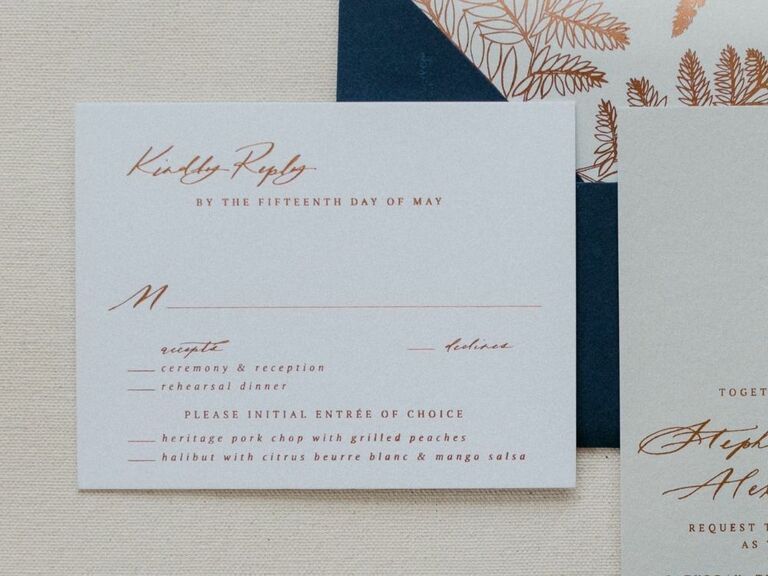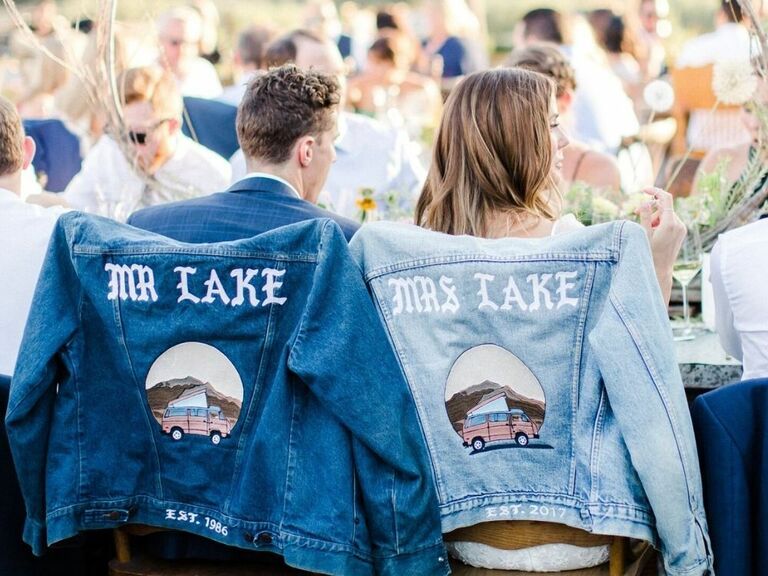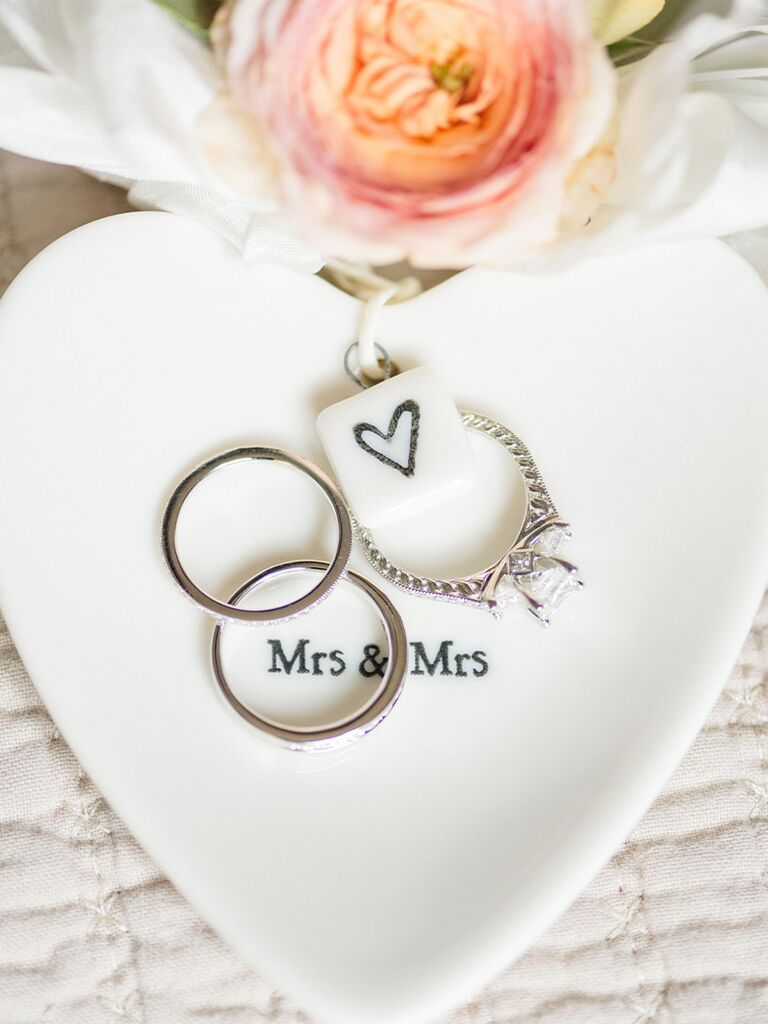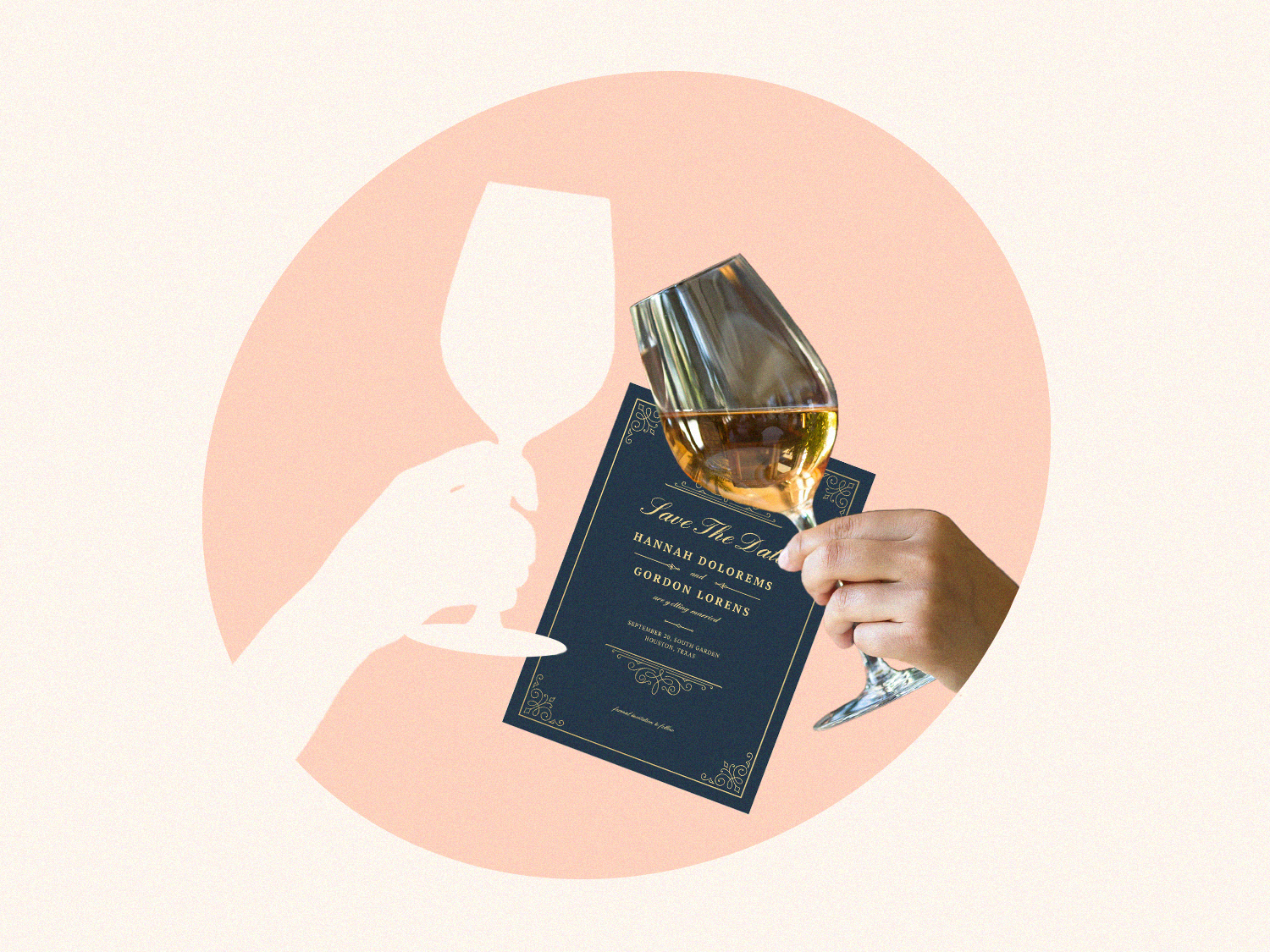Ms., Miss, & Mrs.: Understanding The Difference

Since you're getting married, it's officially time to learn the difference between the "Ms.," "Miss" and "Mrs." prefixes. And if you're wondering why, it's because you have to address your wedding invitations with one of these titles. Plus, you might want to change your honorific and last name after the big day, so you'll need to know how you want people to refer to you. As the host, it's important that you refer to your guests properly as a sign of respect—you don't want one of the first wedding-related things they receive from you to offend.
To clear up all the confusion (and potential drama), we explain exactly when and how to use each title. Use this as your official guide to "Mrs." vs. "Ms." vs. "Miss." and much more. We guarantee you'll be able to use this helpful info for your wedding and beyond.
In this article:
- What's the Difference Between Mrs., Ms. and Miss?
- When to Use Miss, Mrs. or Ms. on Wedding Invitations
- Will I Be Ms. or Mrs. After I Get Married?
- Additional Honorifics to Consider
What's the Difference Between Mrs., Ms. and Miss?
Historically, "Miss" has been the formal title for an unmarried woman, while "Mrs." refers to a married woman. "Ms." is used by and for unmarried and married women.
Ms. Meaning
The title "Ms." is a form of address used both in British English and American English before the surname or full name of any woman regardless of her marital status. But what does "Ms." stand for? Simply put, it's a neutral alternative to "Mrs." or "Miss". "'Ms.' is kind of a catch-all, and can be used interchangeably between situations," explains Ohio-based wedding expert, Valarie Falvey, of Kirkbrides Wedding Planning & Design. "This would be acceptable for a married or unmarried woman and divorced woman."
- Ms. Pronunciation: [mizz]
- Ms. Abbreviation For: Married, unmarried and divorced women.
- Ms. Plural: Mss. or Mses
Mrs. Meaning
Wondering what "Mrs." means? According to the Oxford English Dictionary, "Mrs.," the abbreviation of Missus, is a title used in the English language before a surname or full name to address or refer to a married woman. "Mrs." may also be used for someone who was married (such as a widow). "Mrs." is traditionally considered the female equivalent of "Mr." or Mister.
- Mrs. Pronunciation: [mis-iz, miz-iz]
- Mrs. Abbreviation For: Married or widowed women.
- Mrs. Plural: Mmes. or Mesdames
Miss. Meaning
"Miss" is a title that originated in the early 17th century as a contraction of "Mistress." This honorific is used to address female children or young women under the age of 18 and unmarried women. The title is also appropriate for married women who want to keep their maiden names.
- Miss. Pronunciation: [mis]
- Miss. Abbreviation For: Female children or young women under 18 years old, unmarried women or married women that use their maiden names.
- Miss. Plural: Misses

When to Use Miss, Mrs. or Ms. on Wedding Invitations
"Traditionally, there are three different titles for women: Miss, Ms., and Mrs.," explains Kathryn Johann, owner of Parties By The Sea and featured event planner for Vanessa Villela on Netflix's "Selling Sunset." "If you want to avoid social faux pas, it's important to know the differences between the three. I believe unmarried women past a certain age and divorcées can be addressed as 'Ms'. The exception to the rule would be widowers, who can maintain the 'Mrs.' status out of respect for their deceased husband."
As a rule of thumb, if a guest is a child, feel free to use "Miss." If she's an unmarried adult, go with "Miss" or "Ms." Keep in mind, that "Ms." is often preferred to address women over 18 years old. If she's married and you know her chosen title, write that. If you're unsure, "Ms." is a safe and appropriate choice. If you're sending out a form to gather addresses ahead of mailing invitations, consider including a field where guests can include their chosen title—this will take out all the guesswork and make things easier for you.
Mrs. vs. Ms.
Picture this: your mother has asked that you invite her friend she plays mahjong with to the wedding. You know Beatrice Johnson is married, but she's over 50 years old. You've also never met her, so you haven't witnessed someone refer to her by an honorific. Asking your mother may be a great starting point, but when in doubt use "Ms." to be safe.
Mrs. vs. Miss.
Generally speaking, if the person in question is married, you should go with "Mrs." and if they're not married use "Miss." If you're gathering your guest list for your stationer and you're uncertain how to address your dad's coworker, figuring out their marital status is a good first step in deciding which prefix to use.
Ms. vs. Miss.
While both titles work for unmarried women, age can be a helpful determining factor if you're stuck between the two. For young girls and people under 18, use "Miss" as your go-to. "Ms." works well for addressing an adult woman over 18.

Will I Be Ms. or Mrs. After I Get Married?
Ms. vs. Mrs.—which should you choose? In short, it depends. Typically, brides who change their name postwedding to their partner, wife or husband's name go by "Mrs." This is because it usually indicates that they're sharing a surname with their spouse––an example of this is the title of the action romance movie, "Mr. & Mrs. Smith," starring Angelina Jolie and Brad Pitt.
If you're keeping your maiden name, you can go by "Ms." or stick with "Mrs." as in "Mr. Adams and Mrs. Brown." You can also go by "Ms." if you want your title of respect not associated with your marital status. Many women's personal preference is "Ms." in professional settings or formal settings where they don't want their marital status to be a focal point.
Additional Honorifics to Consider
Knowing the difference between "Ms. and "Miss" is important, but there are a few other titles you need to be aware of before addressing your wedding invitations. Check out what those five honorifics are below.
Mx.: "Mx." first came about in the 1970s and was added to the Merriam-Webster Dictionary in 2017. It's a gender-neutral title that can be used for non-binary guests or those who use they/them pronouns. "Mx. is the title someone can use when preferring not to be addressed by gender," Falvey says. Allie Calzada, owner of Allie the Wedding Officiant LLC and wedding officiant since 2020, explains how to write it on an invitation. "If you are addressing an individual who is non-binary, you would write 'Mx. John/Jane Doe' or just 'Mx. Doe.'"
Dr.: "Dr." should be used to address anyone that has obtained a doctorate, either a medical degree such as an M.D. or a non-medical doctorate such as a Ph.D. "Remember, if a guest is a doctor, then use Dr. as her prefix, and it comes before her spouse if they aren't a doctor," advises Stephanie Sadowski, founder of SRS Events and planner of over 100 weddings. If both members of a couple are doctors and share the same last name, then you can address them as "The Doctors Doe."
Rev.: Reverend or "Rev." is the title used for ministers and clergy members within most Christian denominations. Given the many nuances of religious titles, it's vital you properly research how your officiant or any clergy attending the wedding wants to be addressed.
Your Honor: Your Honor is the special title used to address judges, justices and mayors when addressing a judge directly. However, when addressing a wedding invitation to a judge, it should be written as "The Honorable John Doe."
Military titles: There is a vast hierarchy of military titles for enlisted and officer military members across all branches. It's paramount that a given member of the military is addressed with their correct preferred title. For example, it would be a grave faux pas to address a Brigadier General as a Lieutenant Colonel since those are drastically different ranks.
Hannah Nowack contributed to the reporting of this article.
























